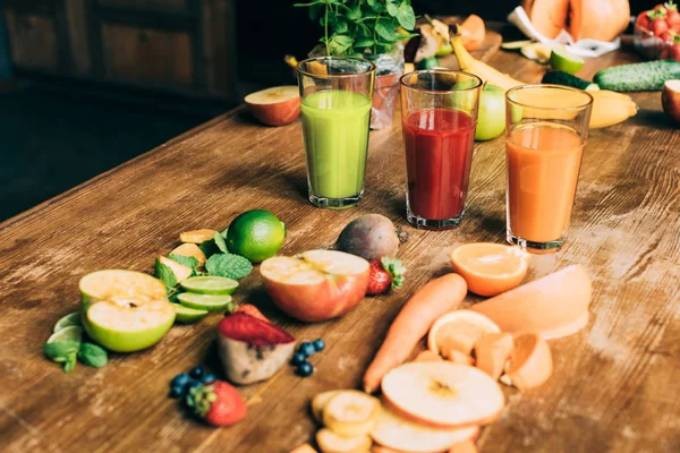8 habits that are destroying your body
1. Overtraining every day

There's no doubting the importance of regular exercise. According to the Mayo Clinic, physical activity can improve your heart health, help you maintain a healthy weight, improve your mood, and give you more energy. But experts say you need breaks during the week, rather than breaking a sweat every day.
'Too much of anything is bad,' family physician Laura Purdy tells Best Life. 'Overuse injuries and overtraining are very common. Things like tendonitis, muscle strains, stress fractures, and even just fatigue and exhaustion can happen when we push our bodies too far or beyond what they can handle.'
Therefore, it is very important that you exercise in moderation, with your doctor's approval, and knowing that the activities are safe.
2. Cut out sugar completely

Sugar is bad for your health, especially the refined sugar found in many processed foods, baked goods, and other snacks. 'Refined sugar intake has been linked to conditions like obesity, type 2 diabetes, and heart disease,' Healthline says.
The American Heart Association (AHA) recommends "limiting added sugars to no more than 6% of daily calories," which translates to no more than 100 calories (about 6 teaspoons) for women and 150 calories (9 teaspoons) for men.
However, the AHA doesn't differentiate between types of sugar. 'The body doesn't know whether the sugar in your diet comes from refined sugar, fruit, honey, or nectar. It only sees monosaccharide sugar molecules,' registered dietitian Amy Goodson told Healthline.
Fearing health risks, many people have decided to cut sugar out of their diets completely, including refined sugars and sugars naturally found in foods. However, "The natural sugars in fresh fruit have nutritional benefits and should be part of your daily diet," says Keri Gans, a registered dietitian and author of The Small Change Diet.
3. Cut out all starch
Likewise, cutting out all carbs to lose weight isn't a healthy choice. "Carbs are not the enemy, and we need to stop treating them as such," says Gans. "In fact, they're the body's preferred source of energy, especially the brain. The more you avoid carbs, the more you crave them."
Instead, the Centers for Disease Control and Prevention (CDC) recommends choosing complex carbs, such as whole-wheat breads, quinoa, sweet potatoes, beans, and lentils, because they're high in healthy fiber and don't cause blood sugar spikes like simple, refined carbs.
4. Relax with a glass of wine
Having a glass of red wine to unwind at the end of the day may not be good for your heart. A November 2022 study published in JAMA Network Open found that drinking any amount of alcohol is bad for your health.
Even if you follow guidelines for safe alcohol consumption, 'there are still risks even at these levels, particularly for certain types of cancer and certain forms of cardiovascular disease,' Dr. Marissa Esser, lead author of the study, told The New York Times.
There is so much evidence of the negative effects of alcohol that in January, U.S. Surgeon General Vivek Murthy released a report calling for cancer warnings on alcoholic beverages. He detailed findings that drinking alcohol 'increases the risk of at least seven types of cancer, including breast (in women), rectum, esophagus, larynx, liver, mouth and throat.'
5. Skipping breakfast

Intermittent fasting is one of the most popular health trends today, hailed for helping people lose weight, lower blood sugar, and reduce inflammation. But skipping meals, especially breakfast, may not always be the healthy choice we think.
"Skipping breakfast can increase cravings because it leads to a drop in blood sugar, which triggers the release of hormones that signal the body to seek out food, often resulting in cravings for sugary or high-calorie foods," Trista Best, a nutritionist at Balance One Supplements, previously explained to Best Life. "Additionally, skipping breakfast can lead to overeating later in the day when hunger increases, contributing to weight gain over time."
Skipping breakfast can also cause low energy levels, affect concentration and cause digestive problems.
6. Regularly sleeping in on weekends
According to the Sleep Foundation, most adults need between seven and nine hours of sleep each night to be at their best. Many people who don't get enough sleep often try to catch up on sleep on the weekends, but experts say this isn't good for the body.
'Our bodies are actually healthier when we have a consistent schedule,' Purdy explains. 'Our brains, bodies, systems, and hormones work best when we give them a very predictable sleep-wake cycle. If you've had a particularly tiring week, are sick, or are traveling, you may need to sleep in occasionally. But getting into an irregular sleep pattern can actually do more harm than good.'
7. Detox your body with juice

When you want to lose weight fast or optimize your energy levels during the winter, you might think a juice cleanse is the way to go. But a January study published in the journal Nutrients found that a three-day juice cleanse can severely disrupt beneficial bacteria and 'rapidly alter the gut microbiome, particularly in the mouth.'
8. Drink kombucha
Many people drink kombucha to improve their gut health. But this fizzy drink can add unnecessary and empty calories to your daily diet because it contains sugar.
'Sugar-sweetened beverages are the leading source of added sugar in the American diet,' the CDC warns, noting that this includes store-bought kombucha. Each bottle of kombucha typically contains an average of 20-24 grams of sugar.
'Regular consumption of sugar-sweetened beverages is associated with weight gain, obesity, type 2 diabetes, heart disease, kidney disease, non-alcoholic liver disease, tooth decay, and gout,' the CDC states.